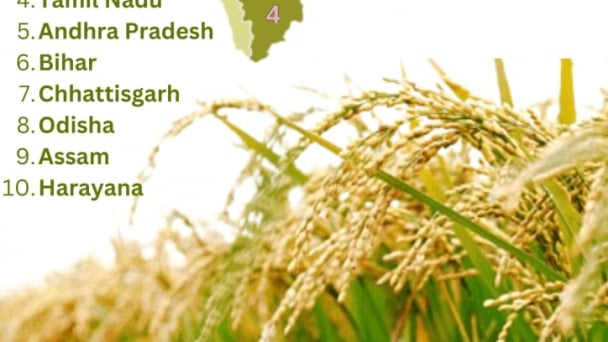June 20, 2025 | 19:38 GMT +7
June 20, 2025 | 19:38 GMT +7
Hotline: 0913.378.918
June 20, 2025 | 19:38 GMT +7
Hotline: 0913.378.918
Leading rice exporters Thailand and Vietnam are competing to gain a larger market share in the Philippines, where poor harvests have forced Manila to ramp up imports and slash tariffs to tame local prices.
The Philippines, the world's biggest rice importer, is forecast to ship in up to 4.1 million tonnes of the grain this year after bringing in 3.2 million tonnes in 2023, according to the U.S. Department of Agriculture (USDA).
Both figures are well above its longer-term average of 2 million to 2.5 million tonnes because the El Nino weather pattern has curbed production of the staple, driving up prices and stoking inflation. To ease the impact on domestic consumers, Manila in June cut its rice import tariff to 15% from 35%.
The move has prompted Thailand and Vietnam -- the world's second- and third-largest rice exporters, respectively -- to approach Manila to capitalize on the Philippines' growing appetite for imports.
Vietnamese Minister of Agriculture and Rural Development Le Minh Hoan and the Philippines Department of Agriculture Secretary Francisco Tiu Laurel Jr. met on July 18 in Hanoi. They agreed that Vietnam would improve the quality of its rice and lift the amount it produces to meet rising demand in its Southeast Asian neighbor, which has been a long-time buyer of such cargoes.
Vietnam exported 3.2 million tonnes to the Philippines in the first six months of this year, according to the USDA, up 11% from the same period last year. Vietnam normally supplies around 80% of the Philippines' annual rice imports.
Meanwhile, senior officials from Thailand's Commerce Ministry and the Thai Rice Exporters Association on July 10 met the Philippines' National Food Authority (NFA), the country's rice buying body, in Manila to seal a memorandum of understanding that Manila would import at least 130,000 tonnes of Thai rice over the rest of this year.
Thailand shipped 300,000 tonnes of rice to the Philippines in the first six months of 2024, according to the Thai Rice Exporters Association, up 388% from around 62,000 tonnes during the same period of last year and around 100,000 tonnes for the whole of 2023.
"Thai rice exports to Manila jumped substantially in the first half of this year because short supply forced the Philippines to rush to import, while the weaker Thai baht allowed Thai exporters to offer at competitive prices," a trader at an international trading house told Nikkei Asia.
The NFA did not respond to a request for comment on the issue.
Thailand expects to export 8.2 million tonnes of rice overall this year, down 6.5% on 2023, the Commerce Ministry said on Tuesday, although that is 9% higher than a forecast it made earlier this year.
The trader said Thailand's success in boosting exports to the Philippines should serve as a wake-up call to Hanoi. "Although Vietnam has been a traditional supplier for the Philippines, this year it (Vietnam) has to be more active because the competition has intensified".
However, Charoen Laothamatas, president of the Thai Rice Exporters Association, told Nikkei Asia, "It will be tougher for Thailand to compete in the second half of the year as there should be greater supply from Pakistan available in the market and we might not compete with Vietnam as they have higher rice yields which allow them to offer at more competitive prices."
According to the USDA, the average Thai rice yield is 400 to 500 kilograms per rai (1,600 square meters), while Vietnam's is at 700 to 900 kg per rai.
With this economy of scale, Vietnam's "25% broken" grade of white rice, the variety normally bought by the Philippines, was quoted at $520 per tonne last week, or around $30 per tonne lower than the equivalent Thai grade.
"In the Philippines market, price is the key," Charoen said. "If you can offer at competitive low prices, you win."
Charoen added that the global rice industry is also keeping an eye on Indian production, which is expected to be abundant this year. This could mean the end of India's white rice export ban, prompting more grain to spill into the global market and potentially sparking a price war over the rest of the year.
(Nikkei Áia)

(VAN) Last week, the U.S. Department of Agriculture (USDA) released its June World Agricultural Supply and Demand Estimates (WASDE), raising projections for both Indian rice production and U.S. rice imports for the 2025/2026 marketing year.
/2025/06/17/2344-1-131758_261.jpg)
(VAN) Amid tariff risks and growing trade barriers in the U.S. market, Australia is emerging as a promising destination to sustain the growth momentum of Vietnam's shrimp exports.
/2025/06/17/2013-1-nongnghiep-112009.jpg)
(VAN) This notable growth trend reflects the global taste for fresh, nutritious fruits and the expanding use of lychees across various sectors.

(VAN) The political and cultural insulation of Japan’s beloved grain is falling apart, and experts warn the country’s relationship with the staple will have to adapt.

(VAN) Noting risks, report examines impacts of avian influenza, changing trade patterns since 2022, fish fraud, and shipping industry’s net-zero goals.

(VAN) Mr. Tran Quang Bao, General Director of the Forestry and Forest Protection Department, met and worked with the International Wood Products Association to promote cooperation in the field of timber trade.

(VAN) China's outbound shipments of rare earths in May jumped 23% on the month to their highest in a year, though Beijing's export curbs on some of the critical minerals halted some overseas sales.